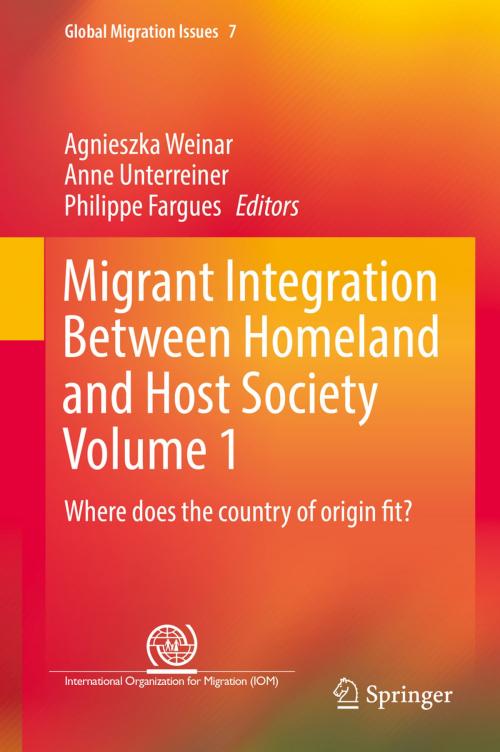Migrant Integration Between Homeland and Host Society Volume 1
Where does the country of origin fit?
Nonfiction, Social & Cultural Studies, Social Science, Cultural Studies, Emigration & Immigration, Political Science| Author: | ISBN: | 9783319561769 | |
| Publisher: | Springer International Publishing | Publication: | May 23, 2017 |
| Imprint: | Springer | Language: | English |
| Author: | |
| ISBN: | 9783319561769 |
| Publisher: | Springer International Publishing |
| Publication: | May 23, 2017 |
| Imprint: | Springer |
| Language: | English |
This book provides a theoretical framing to analyse and examine the interaction between origin and destination in the migrant integration process. Coverage offers a set of concrete conceptual tools, which can be operationalised when measuring integration. This title is the first of two complementary volumes, each of which is designed to stand alone and provide a different approach to the topic. Here, the chapters offer a detailed look at integration across eight key areas: labour, education, language and culture, civic and political participation, housing, social ties, religion, and access to citizenship. Readers are presented with an examination into the globally available knowledge on interactions between emigration/diaspora policies on one hand and integration policies on the other. Migrants actively belong to two places: the land they left behind and the home they are seeking to build. This book gives an insightful argument for the need to include information about countries and communities of origin when examining integration, which is often overlooked. It will appeal to academics, policymakers, integration practitioners, civil society organisations, as well as students.Overall, the chapters establish a cohesive analytical framework to this important topic. A complementary volume: Migrant Integration between Homeland and Host Society Volume 2: How countries of origin impact migrant integration outcomes: an analysis, edited by A. Di Bartolomeo, S. Kalantaryan, J. Salamonska and P. Fargues builds upon this foundation and presents an empirical approach to migrant integration.
This book provides a theoretical framing to analyse and examine the interaction between origin and destination in the migrant integration process. Coverage offers a set of concrete conceptual tools, which can be operationalised when measuring integration. This title is the first of two complementary volumes, each of which is designed to stand alone and provide a different approach to the topic. Here, the chapters offer a detailed look at integration across eight key areas: labour, education, language and culture, civic and political participation, housing, social ties, religion, and access to citizenship. Readers are presented with an examination into the globally available knowledge on interactions between emigration/diaspora policies on one hand and integration policies on the other. Migrants actively belong to two places: the land they left behind and the home they are seeking to build. This book gives an insightful argument for the need to include information about countries and communities of origin when examining integration, which is often overlooked. It will appeal to academics, policymakers, integration practitioners, civil society organisations, as well as students.Overall, the chapters establish a cohesive analytical framework to this important topic. A complementary volume: Migrant Integration between Homeland and Host Society Volume 2: How countries of origin impact migrant integration outcomes: an analysis, edited by A. Di Bartolomeo, S. Kalantaryan, J. Salamonska and P. Fargues builds upon this foundation and presents an empirical approach to migrant integration.















